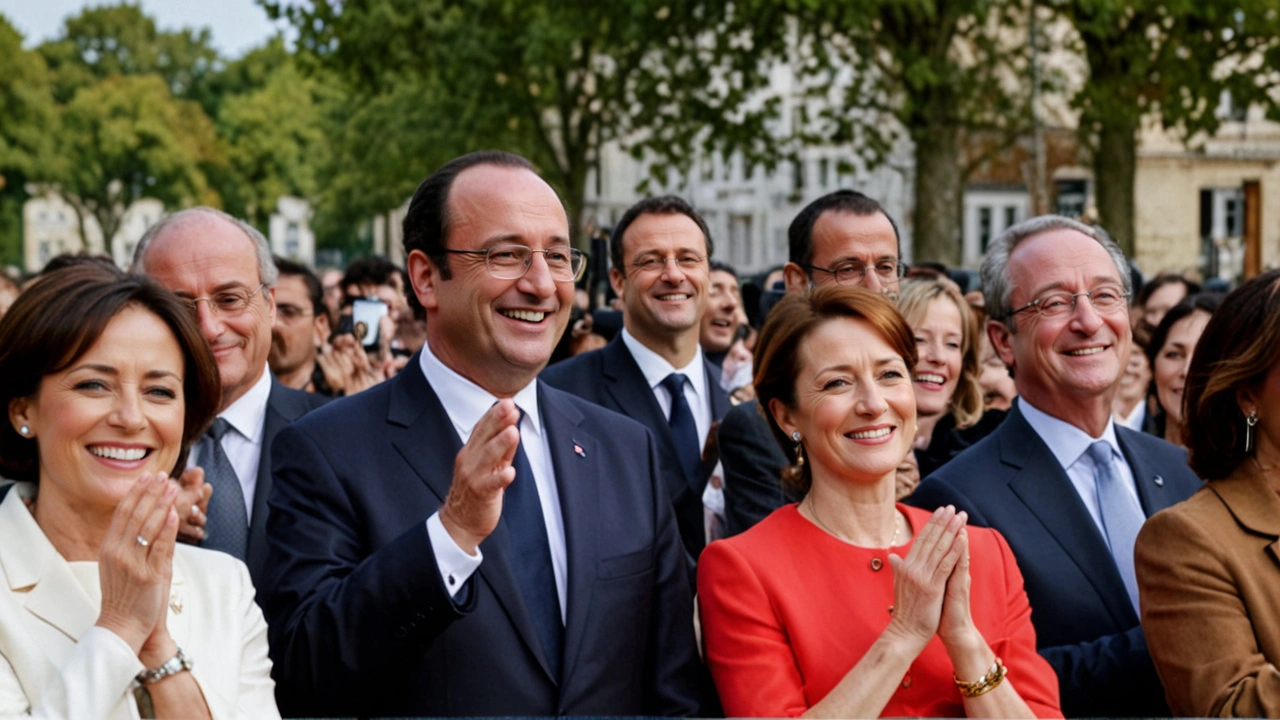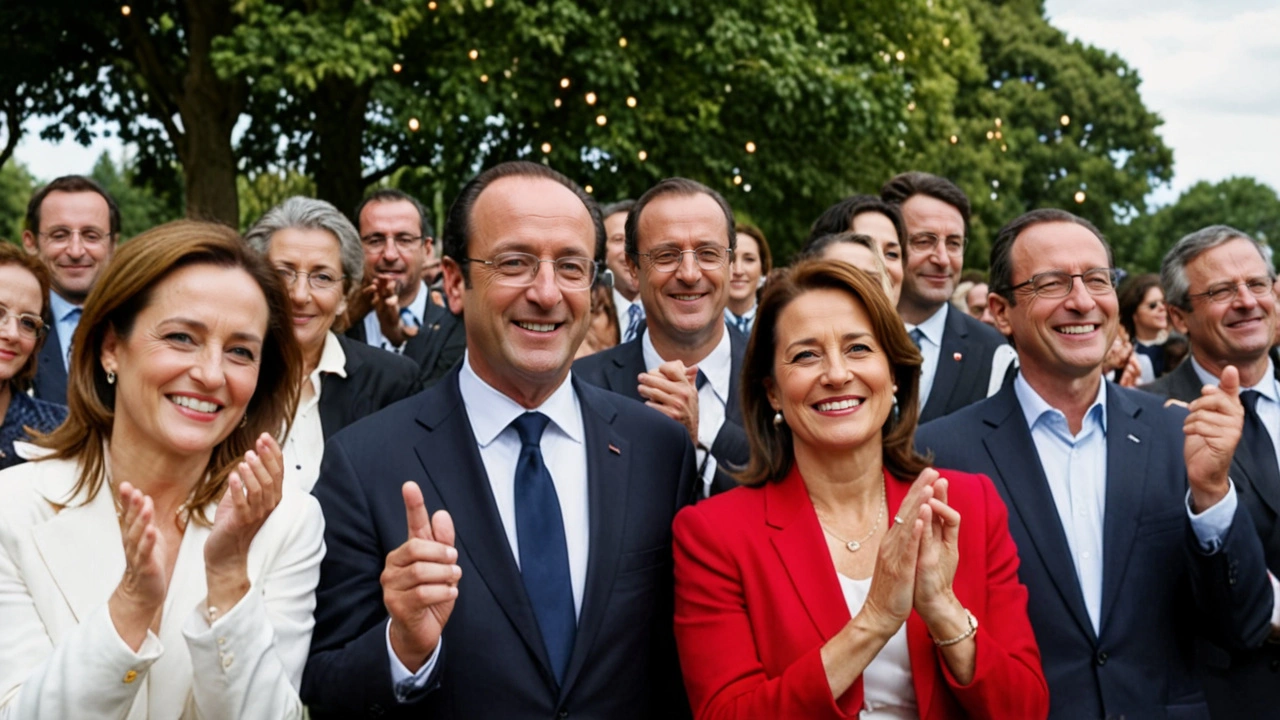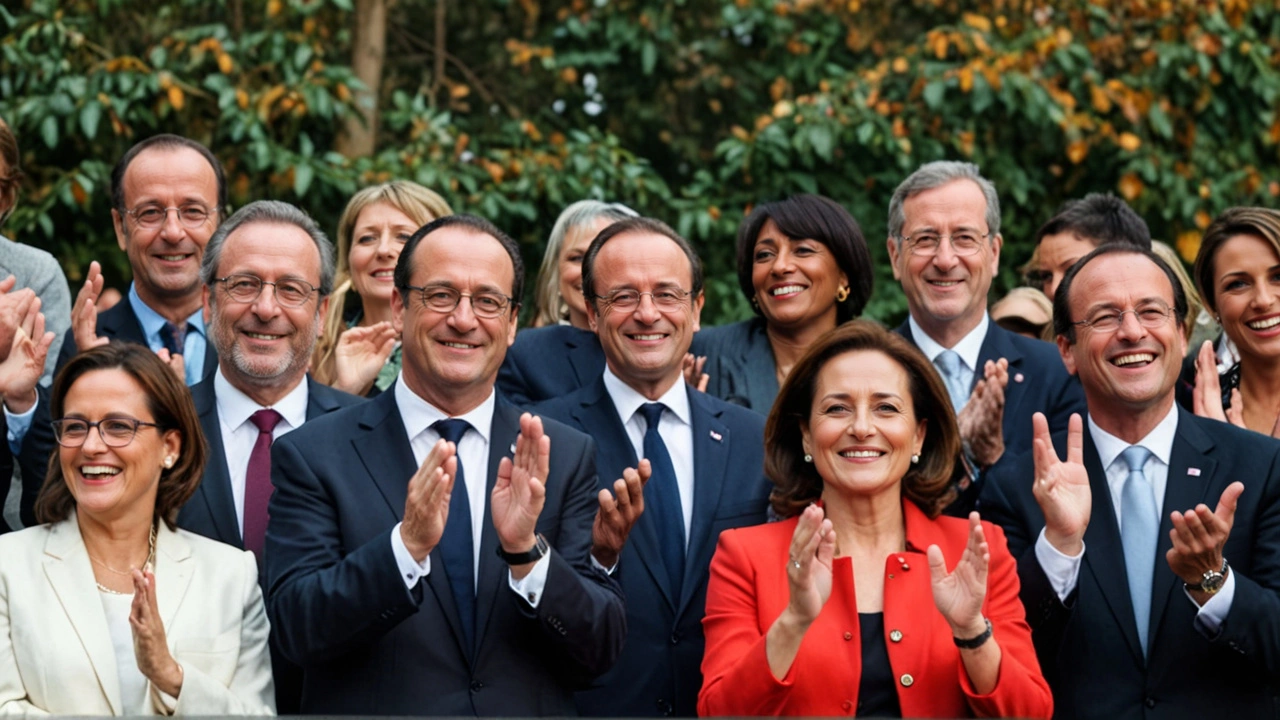Introduction: A Pivotal Moment in French Politics
France recently held a critical parliamentary election that has garnered international attention. President Emmanuel Macron, seeking to solidify a renewed mandate for his centrist Ensemble coalition, led by his Renaissance party, called for an early election. However, the result was far from straightforward, setting the stage for a complex political drama that saw the formation of unexpected alliances and highlighted deep divisions within the electorate.
Macron’s Gamble and the Far-Right Surge
Emmanuel Macron’s decision to opt for an early election was a calculated risk. With his popularity waning from earlier highs, the President hoped a renewed mandate would shore up his political capital. However, initial polls suggested a worrying trend for the centrists, as the far-right National Rally (RN), led by Marine Le Pen, appeared to be gaining momentum. This caused alarm among many who feared a rightward shift could take hold in France.
The RN had been rising steadily, capitalizing on growing discontent over issues such as immigration, security, and economic inequality. Their populist message resonated with a significant portion of the French public, leading to concerns that Le Pen's party might secure an unprecedented victory. This potential outcome set off alarm bells for progressives and moderates alike, as they scrambled to prevent what seemed like an inevitable surge of the far-right.

The Formation of the New Popular Front
In response to this threat, a coalition of far-left parties banded together to form the New Popular Front (NPF). This strategic alliance was designed to halt the National Rally's apparent march towards victory. Driven by a shared sense of urgency, the NPF orchestrated a tactical withdrawal of candidates in over 200 constituencies. This move aimed to consolidate the progressive vote and maximize their chances of success against the RN.
The NPF quickly gained traction, positioning itself as a viable alternative to both the RN and Macron's centrist Ensemble. Their message of social justice, economic equality, and anti-racism resonated with many voters, particularly those left disillusioned by the traditional political spectrum. The coalition's efforts paid off, helping them to emerge as the single largest party in the parliamentary elections.
Results and Immediate Implications
The election results painted a complex picture. The NPF emerged as the largest party, but Macron's Renaissance party secured second place, followed by the RN. This diverse outcome led to a hung parliament, requiring intricate negotiations and alliances to form a functioning government. While the far-right had indeed made significant gains, their anticipated landslide victory was thwarted, largely due to the strategic maneuvering by progressive forces.
This outcome demonstrates a critical lesson for progressives worldwide: unity and strategic planning can effectively counter the rise of far-right populism. By forming alliances and focusing on shared goals, disparate factions can overcome ideological differences to present a united front against common adversaries. This model of collaboration may serve as a blueprint for other nations grappling with similar political challenges.

Broader Implications for Global Politics
The significance of this election extends beyond France’s borders. With the global political landscape experiencing a shift towards conservatism and populism, the French experience provides a valuable case study for other progressive movements. The possible return of figures like Donald Trump in the United States further underscores the importance of coordinated efforts to maintain progressive values and policies.
France’s recent election illustrates the power of the electoral process in shaping the direction of a nation. It also highlights the importance of resilience and unity among progressives facing a growing conservative tide. As political dynamics continue to evolve globally, the strategies employed in France may offer crucial insights into how progressives can regain and maintain influence.
Conclusion: A Lesson for Progressives Worldwide
The French parliamentary election serves as a potent reminder of the importance of strategic alliances and focused objectives. In a world characterized by increasing political polarization, progressive forces must adapt and innovate to counter the rise of conservative and far-right movements. By drawing lessons from France's experience, progressives can work towards reclaiming lost ground and consolidating their position in the political landscape.
As we look ahead, the challenges facing progressives are manifold, but so are the opportunities for meaningful change. The recent events in France offer a source of inspiration and a roadmap for those committed to fostering a more equitable, just, and inclusive society. It is a call to action for progressives to step up, unite, and navigate the complexities of contemporary politics with renewed vigor and determination.

Byron Marcos Gonzalez
July 10, 2024 AT 18:57Behold the dazzling tapestry of French politics, where the left and right waltz in a spectacle of ambition! 😊
Chris Snyder
July 20, 2024 AT 20:26The strategic withdrawal of candidates in over 200 districts was a masterstroke that amplified the progressive vote, turning fragmented support into a cohesive force. By consolidating behind the New Popular Front, voters sent a clear signal that unity can blunt the surge of extremism. This approach offers a practical lesson for any movement facing a polarizing opponent 😊
Hugh Fitzpatrick
August 1, 2024 AT 10:13Oh sure, because coordinating hundreds of campaigns is totally a walk in the park-nothing like a bit of chaos to keep things interesting. Still, the way the left rallied shows that even the messiest of alliances can outwit a predictable far‑right surge.
george hernandez
August 30, 2024 AT 08:40The French parliamentary election unfolded like a grand drama on a storm‑tossed stage.
Voters watched as the centrist Ensemble teetered on a precipice while the National Rally surged like a dark tide.
In response, a coalition of left‑wing parties emerged, branding themselves the New Popular Front with a banner of hope.
Their decision to withdraw candidates from hundreds of constituencies acted as a strategic fuse, igniting a concentrated progressive blaze.
By pooling resources and messages the front created a unified front that resonated across urban neighborhoods and rural hamlets alike.
The result was a paradoxical parliament where no single bloc claimed an outright majority.
This hung parliament forced parties into negotiations that resembled a chess match with every move scrutinized.
The progressive alliance leveraged its position to extract policy concessions on social justice and economic equality.
Meanwhile the far‑right, though denied a landslide, secured a foothold that could influence future debates.
International observers noted that France’s experiment offered a template for countering populist waves without abandoning democratic principles.
The lesson that solidarity can transform fragmented votes into decisive power echoed in activist circles far beyond Europe.
Critics argue that such coalitions risk diluting ideological purity but the electoral outcome suggests practicality can triumph.
Moreover the French case illustrates that early elections, while risky, can reset political momentum when wielded wisely.
The narrative of resilience and adaptation now fuels progressive campaigns seeking to replicate this model.
As parties chart their next moves, the balance between compromise and conviction will determine long‑term success.
In the end the French experiment stands as a vivid reminder that political landscapes are reshaped by collective will and clever strategy.
bob wang
September 10, 2024 AT 22:26Indeed, the analysis presented above is both comprehensive and insightful; however, it warrants further clarification regarding the mechanisms of candidate withdrawal, the precise distribution of seats, and the subsequent policy negotiations-elements that are pivotal for a full understanding of the parliamentary configuration. Moreover, the reference to \"strategic fuse\" could be expanded to encompass the logistical coordination among constituent parties, including budget allocations, messaging synchronisation, and grassroots mobilisation, all of which are essential for replicating such a model in other jurisdictions. It is also advisable to consider the potential long‑term ramifications on party identity, voter loyalty, and legislative effectiveness, especially in a fragmented political environment. Finally, I would encourage scholars and strategists alike to examine comparative case studies, perhaps drawing parallels with coalition dynamics observed in Scandinavian legislatures, to enrich the discourse further. 🧐📚